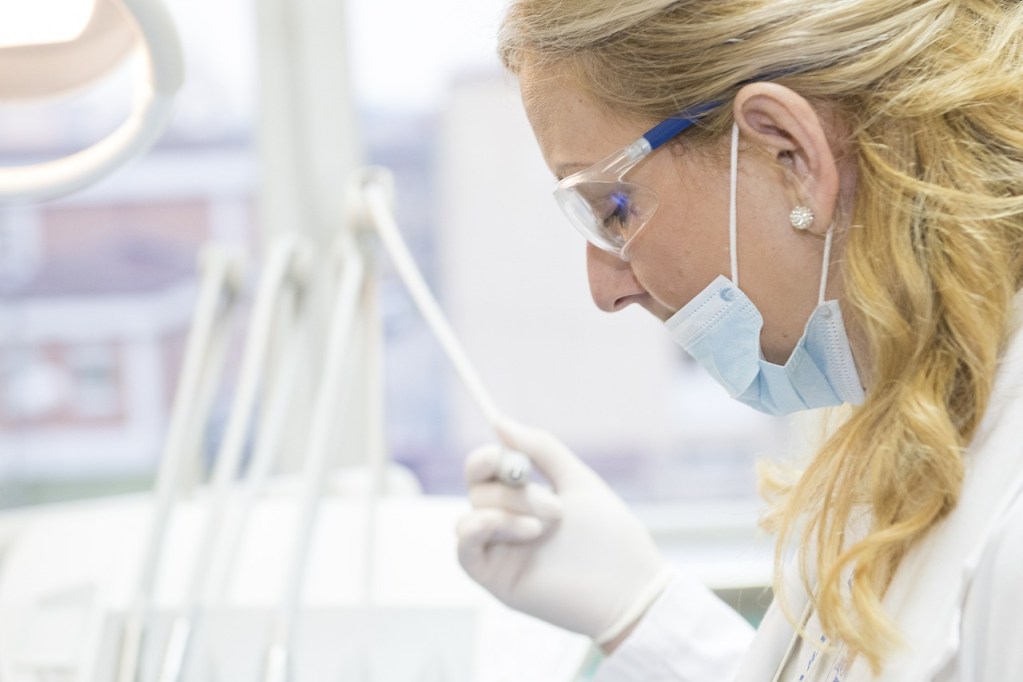Sexual health and college students: STIs, testing and safe sex

By Eva Osborne-Sherlock
Sexual health can be uncomfortable to talk about, but it is essential for college students to be aware of the consequences that neglected sexual health and hygiene can have on themselves and their sexual partners.
This is the view of Laura Dowling – the CEO and founder of Fabuwellness (nutritional supplement supplier), Presenter of ‘The Laura Dowling Experience’ health and fitness podcast, and a pharmacist with over 20 years of experience.
Dowling discussed extensively the impacts that untreated STIs can have on fertility, the stigma surrounding sexual health in young people, and the importance of STI testing.
Testing
Dowling said the main measure college students should take when taking responsibility for their sexual health should be to raise the importance of STI testing in their own minds and to release any shame or stigma related to it.
“I think the main takeaway should be testing, testing, testing. They should test all the time,” she said.

She also urged that students be aware of the windows of testing, and when to test if they suspect they have been exposed to an STI.
“You also have to remember that there is a window of testing. So, say you had sex yesterday unprotected and you go to have a test today, nothing is going to show up for up to three or four weeks if it’s chlamydia, gonorrhea, or else six weeks if it’s HIV,” she explained.
“It takes time for the infection to get into your body and for your antibodies to start showing.”
“That testing window is important, that people are aware of that.”
Asymptomatic infections
Dowling warned that 70% of STIs can have few to no symptoms at all, and that is why regular testing is important if college students are having unprotected sex.
“I think it’s really important to be really frank: People aren’t using condoms, and that’s why this is spreading,” she said.
“And people particularly don’t use condoms for oral sex, and chlamydia and gonorrhea can be transmitted by oral sex too.”
“So you can have gonorrhea in your throat but you don’t know because it’s lying there asymptomatic.”
Untreated STIs can ‘destroy reproductive health’
The impacts of STIs can go far beyond the time of infection and can have devastating consequences on fertility.
When someone is unaware that they have an infection, that infection can go on to “destroy reproductive health,” Dowling warned.
“A woman can get a trivial infection and will be asymptomatic and not get treated and it can destroy her fallopian tubes. It can destroy her reproductive health.”
“And they won’t know that has happened because they haven’t got tests and haven’t gotten the antibiotics to help to get rid of it.”
“Then they’re suddenly in their late 20s or early 30s trying to have a baby and they have difficulty conceiving.”

Dowling explained that, in some cases, it is only when people try to have kids that they realise they ever had an STI.
“It’s only when they go to the doctor and they have a scan that they realise it was potentially a previous chlamydial infection that caused the damage to their fertility,” she said.
“So the really important message to get out there is that people should be testing regularly, particularly between partners, but then also if they’re having regular, non-monogamous sex and they’re having multiple partners.”
SH:24
Dowling urged college students to avail of SH:24 – a free online sexual health service, delivered in partnership with the HSE in Ireland and with the NHS in the UK.
“I actually did the test myself and I showed people how easy it is,” she said.
“For the SH:24, you can just go online and order the test, which is completely confidential to your home. Then you can do the test in the comfort of your own home and then send it off.”
“Then you will get a text message to tell you what the results were and then kind of like signpost it to an STI clinic near you where they can go and they can actually get the antibiotics or the treatment you need.”
Practicing safe sex
Dowling explained that getting tested is not just an individual safety precaution, but also a precaution for your partners.
“There’s always that kind of awkward conversation that you have to have someone when you’re first being with them,” she said.
“You have to say: ‘Look, have you had an STI check recently?'”

“I always find it interesting that people might squirm when asking someone that. Why is it embarrassing? Ask them to go and get tested.”
“I would much prefer if I was out and single, that if I was hooking up with someone and they turned around and said to me: ‘Sorry, I’d rather get tested before we have sex’.”
“I would like respect that, but also it would make me think: ‘Oh, actually this person is looking after their sexual health and that’s actually a really good sign – to make sure that I’m safe and they’re safe’.”
STI rates in Galway
In the HSE West area, which is made up of counties Galway, Mayo and Roscommon, 609 cases of chlamydia were confirmed in 2022.
197 cases of gonorrhea were confirmed, 124 of genital herpes and 41 of syphilis.
Ireland STI rates
The HSE said STI notifications have increased significantly since the start of the Covid-19 pandemic.
The latest STI statistics from the Health Protection Surveillance Centre (HPSC) have shown that the overall STI notification rates in women increased by 34% in the 20-24 age group between 2019 and 2022.
Gonorrhoea infections have increased in both the 15-19-year-old age group (+23%) and the 20-24-year-old age group (+75%) between 2019 and 2022.
In men, the overall STU notification rate increased by 8% in those aged between 15 and 19 and rose by 17% in those between 20 and 24.
Gonorrhea rates, like those in women, increased significantly.
The 15-19-year-old age range saw a 44% increase in cases and the 20-24-year-old age range saw a 56% increase.
Preventing STIs
The HPSC said the main step to prevent STIs is to use condoms for vaginal, oral and anal sex.
Get tested for STIs if:
- You have symptoms of an STI;
- Change your sexual partner;
- Have multiple or overlapping partners;
- Your partner has an STI.
Further information on STIs and free sexual health services is available at:
- https://www.sexualwellbeing.ie/;
- http://www.man2man.ie/ – (resource for gay and bisexual men and other men who have sex
with men in Ireland).







